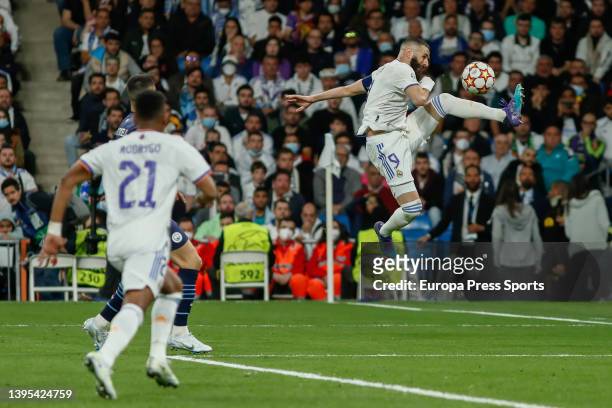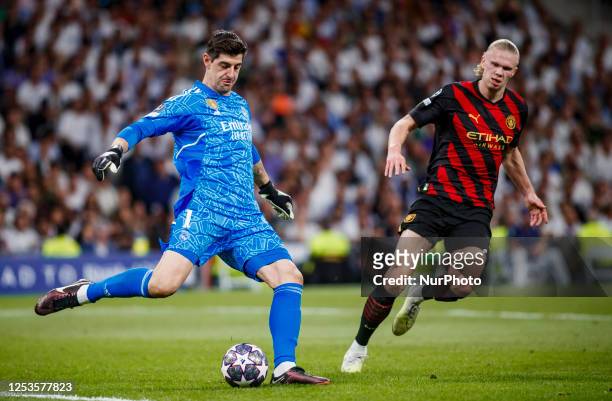Real Madrid host Manchester City in the first leg of the UEFA Champions League quarter final on Tuesday night, marking the start of yet another instalment of a burgeoning European rivalry.
The clubs have faced each other three times in the past five years in the competition's knockout stages, with Pep Guardiola's side winning two and Carlo Ancelotti's impressive Madrid outfit winning once.
History and Prestige vs Geopolitical Power
The clash not only sees a confrontation between two of the best (and richest) clubs in Europe, but also two of the main actors in a proxy economic and ideological war between the established elite of European football of which Los Blancos are a symbol, and the new kids on the block, newly wealthy state-backed clubs such as City, keen to gatecrash the old guard with unlimited funds and a flagrant disregard for the prestigious and traditional European aristocracy.
Real Madrid, along with the likes of Barcelona, Manchester United, Bayern Munich and AC Milan, hold alot of sway in European football circles, having conquered the continent's most prestigious competition a record 14 times, 7 times more than any other side.
With a legacy of prestige built in the fledgling years of pan-European competition, aided by the alleged favour of Spanish dictator General Franco, the finance of legendary club president Florentino Perez that has allowed them to sign the world's best players (Galacticos) consistently over the past two decades, and a long-established status as one of the biggest and most well-supported clubs in world football, Real Madrid are the flagship club of UEFA, and European football as a whole.
On the other hand, Manchester City have none of that. Despite being well supported for their size, averaging crowds of 30,000 at Maine Road throughout the dark days of the 80s and 90s in which the club toiled in English football's lower divisions, City fans could have been forgiven for believing themselves to be condemned to forever live in the shadow of arch-rivals Manchester United for eternity.
The course of the club's history was to change in 2008, when the club was the subject of a takeover by Sheikh Mansour and the Abu Dhabi United Group. Unprecedented success was soon to follow as colossal sums of money were invested in world-class players and facilities, the state-backed juggernaut putting more than a few establishment noses out of shape along the way, including the likes of La Liga Chief Javier Tebas and other footballing high-ups unimpressed with what they perceive to be financial doping.
Tomorrow's game is therefore a collision between old and new money that has come to define an era of football, as a whole new breed of club sets about challenging the traditions and conventions that European football was, rightly or wrongly, built on.
On the field, expect drama
Having met in the semi-finals for two consecutive seasons, with each team winning once, tomorrow's clash promises to be a tantalising affair, with the question being what Carlo Ancelotti's side will have learnt from last season's 5-1 aggregate loss.

Indeed, the last campaign is when Pep Guardiola's side finally came of age in Europe after naively being knocked out in extra time by Madrid the year before, going on to lift the coveted trophy after beating Inter Milan 1-0 in the final.
Will Bellingham shine as he has done all season? Can Haaland finally start scoring in clutch games again? The narratives and scenarios are plentiful, and this is a footballing and ideological match-up that the footballing world will not get bored of.

